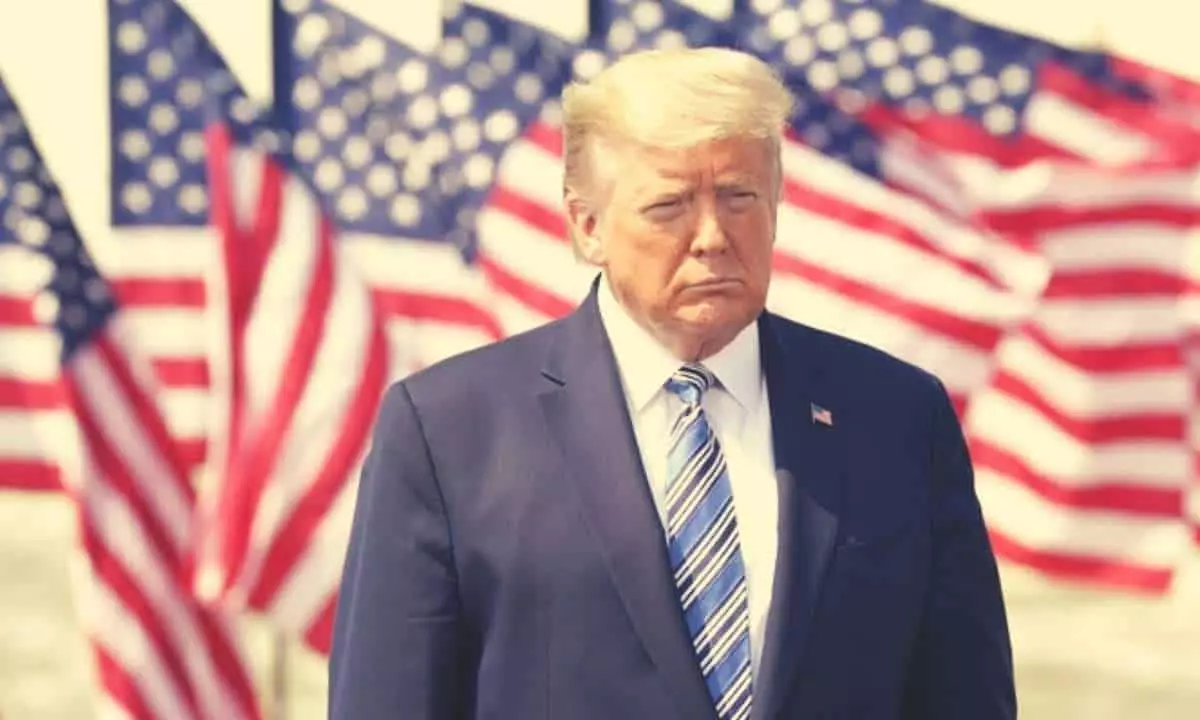On April 10, a significant political shift occurred when President Donald Trump signed a resolution overturning the IRS’s “DeFi Broker Rule.” This move is not just a regulatory repeal; it represents a testament to the ongoing tension between government oversight and burgeoning innovation in the decentralized finance (DeFi) sector. Supporters, led by Representative Mike Carey (R-Ohio), argue that this new legislation breaks from an era of over-regulation that stifles the vibrant creativity within the crypto space. In essence, this repeal is a victory for free enterprise—in a domain where innovation should ideally thrive unfettered by unnecessary bureaucratic constraints.
The IRS rule aimed to expand definitions of who constitutes a “broker” within the digital asset space, creating new requirements for developers of decentralized platforms. This would have necessitated the reporting of detailed transaction data—information that decentralized platforms typically do not hold. The proposed rule would have unduly complicated matters for developers and potentially chased them away to more lenient jurisdictions. The repeal thus comes as freedom from an impending regulatory omnipresence that many in the industry viewed as not just burdensome, but fundamentally incompatible with DeFi’s very structure.
Innovation or Compliance Nightmare?
Critiques of the now-defunct IRS rule highlighted its incongruity with how decentralized applications function. In DeFi, users trade without intermediaries, making the collection and reporting of user data not only difficult but practically impossible. A significant number of developers had voiced concerns that even attempting to comply with the IRS requirements would distract them from their primary mission of driving innovation. As these innovations are essential for progress in an increasingly digital economy, the repeal serves as a clarion call for a pro-innovation regulatory landscape.
In the face of stronger departmental oversight from the previous administration, the repeal also signals a potential resurgent era where the U.S. can reclaim its place as a leader in the global cryptocurrency market. By not burdening DeFi platforms with unnecessary compliance costs—estimated by some advocates as being capable of overwhelming the IRS during tax season—the legislation encourages American innovation at a time when global competitors could easily gain ground.
Privacy and the American Dream
Another compelling aspect of this repeal is the defender’s emphasis on individual privacy. As our lives become increasingly digitized, the expectation of privacy remains paramount for countless Americans. The IRS rule was viewed as an infringement on this freedom, unnecessarily exposing citizens to unwarranted scrutiny. Representative Carey aptly pointed out the need for innovative policies that protect taxpayer privacy while promoting economic growth. This legislative maneuver combines pragmatism with a respect for individual rights—further solidifying the stance that innovation should not come at the expense of personal freedoms.
The implications of the repeal extend beyond technological advancements; they contribute to a broader narrative regarding individual autonomy. By reducing governmental oversight, the Trump administration’s actions reaffirm the belief that citizens should be free to explore emerging opportunities without having to navigate a convoluted maze of regulatory compliance.
The Road Ahead for Crypto Regulation
The swift passage of this repeal through Congress suggests a unified focus within the Republican ranks to limit overreaching interventions in the cryptocurrency market. With industry experts advocating for less restrictive regulations, this shift in Washington could signify greater engagement with the obstacles and complexities posed by evolving digital finance. Ultimately, it fosters an environment conducive to comprehensive dialogue among stakeholders—including entrepreneurs, investors, and regulatory bodies.
Moreover, Trump’s formulation of a federal crypto task force illustrates a commitment not merely to passive governance but active engagement in shaping the mid- to long-term future of digital assets. As crypto enthusiasts cautiously glance toward what lies ahead, they should feel empowered by the recent victories that challenge prior legislative hurdles. A more lenient regulatory framework that prioritizes innovation could stimulate an era of creativity and growth the likes of which we have yet to see.
While this article doesn’t provide a final summary, it’s essential to appreciate the transformative potential that the repeal of the DeFi Broker Rule embodies for the crypto landscape. The convergence of regulatory easing and proactive policy-making sets the stage for an exciting, evolving financial future—one that respects both innovation and individual privacy.
















Leave a Reply